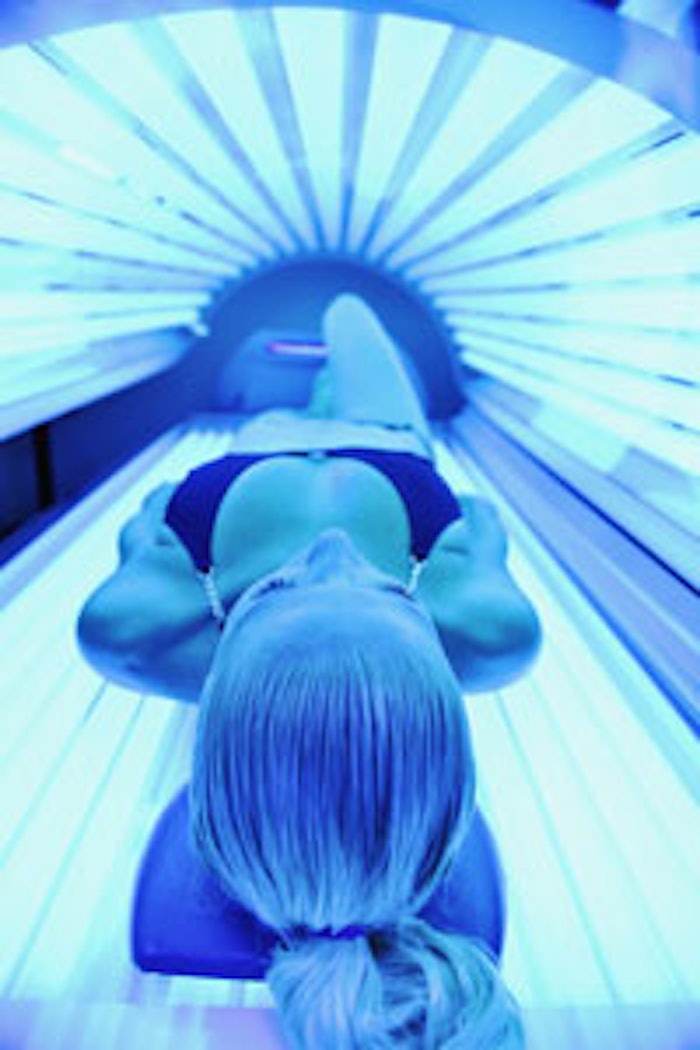
In October 2011, California became the first US state to ban indoor tanning for minors under the age 18 years. Vermont followed in May 2012. Increasingly, scientific evidence shows that artificial tanning raises the risk of skin cancer, including melanoma, a common cancer in adolescents and young adults and the type most likely to result in death.
The World Health Organization, the American Academy of Pediatrics, the American Academy of Dermatology, the American Medical Association, and other organizations strongly recommend legislation to ban minors under age 18 from indoor tanning. Several nations have banned teen tanning. Yet, tanning in salons is still a prevalent practice in the United States, especially among teen girls, where rates for the oldest teens approach 40%. There is no federal legislation to restrict minors from salon tanning. More than 60% of states have some kind of legislation regarding minors’ use of tanning salons, but only California and Vermont have passed complete bans of indoor tanning for minors.
The Indoor Tanning Association, an industry advocacy group, has vigorously opposed legislative efforts. Pediatricians can play key roles in counseling families and with legislative efforts. Preventing exposure to artificial tanning may save lives, including young lives, and is a key cancer prevention opportunity for pediatricians.
Engaging families in discussions about tanning beds represents a unique and one of few cancer prevention opportunities for pediatricians. Evidence reveals that counseling is effective for youth and young persons aged 10 to 24 years. Discussions about UVR exposure, including artificial tanning, need to be integrated into health maintenance visits and should also occur at times when a teen arrives in the office with a tanned appearance or sunburn. A reasonable message is to “love the skin you’re in.” Pediatricians and dermatologists should work together, using their knowledge and perspectives to advocate for banning salon tanning for all minors. It is difficult to justify recreational exposure to a known carcinogen in any human population. Thus, child health advocates are working to encourage both state and federal governments to ban minors from indoor tanning. A long-term goal is banning indoor tanning for adults as well as teens, as has been done in Brazil and parts of Australia.
This information is from Teens and Indoor Tanning: A Cancer Prevention Opportunity for Pediatricians by Sophie J. Balk, MD, David E. Fisher, MD PhD, and Alan C. Geller, RN, MPH, which was published in Pediatrics, the official journal of the American Academy of Pediatrics. In the article the authors review the prevalence of salon tanning, association with skin cancer risk, tanning addiction, the roles of the federal and state governments in regulation and legislation, and responses to arguments created by industry to oppose legislation.










